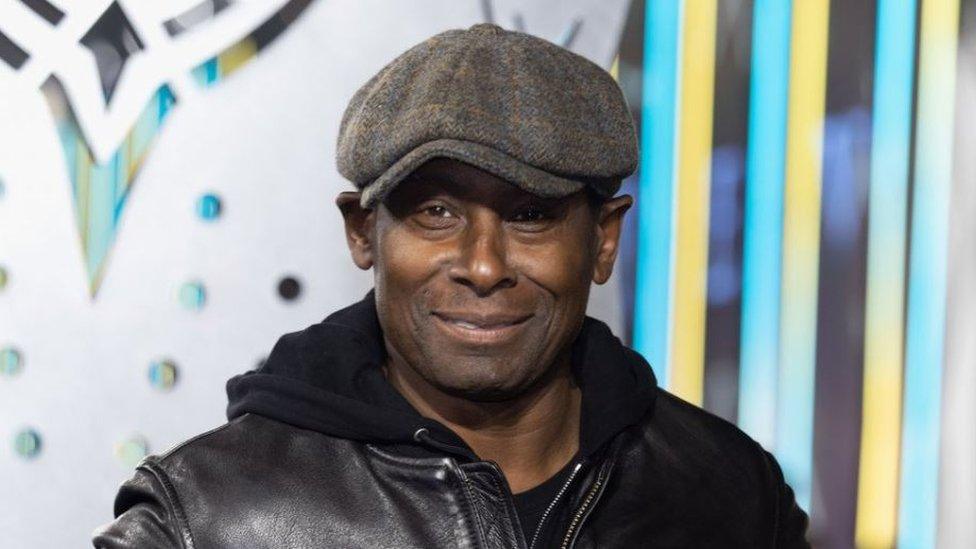David Harewood: Actor says the government should apologise for slavery
- Published
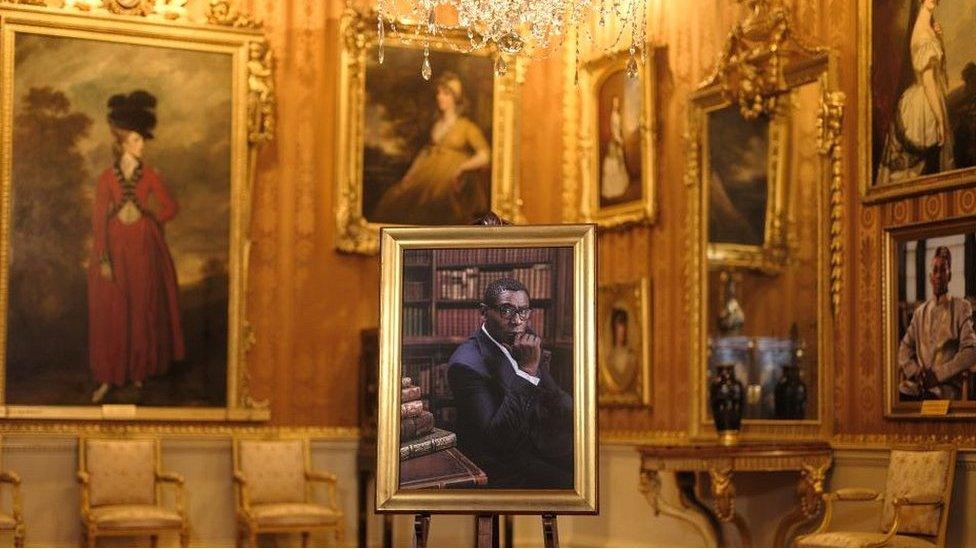
A portrait of David Harewood has been unveiled in the drawing room at Harewood House near Leeds
Actor David Harewood has said the government should "100%" apologise for Britain's role in the slave trade.
The Homeland star has discovered his ancestors were enslaved on sugar plantations in Barbados.
He told the BBC the government's failure to say sorry was "detrimental to the many thousands of people in the country who are descended from slaves".
Prime Minister Rishi Sunak has previously said "trying to unpick our history is not the right way forward".
Harewood's ancestors were enslaved on plantations owned by the Lascelles family, the Earls of Harewood, who built Harewood House, a vast 18th Century stately home near Leeds.
'It's still not easy': Actor David Harewood on his family's slave history
No expense was spared, with furniture by Thomas Chippendale, landscaping by famed garden designer Capability Brown and portraits by Reynolds and Gainsborough.
But it was financed with the proceeds of slavery. The Lascelles made their fortune and gained their title on the back of an inhumane trade.
Harewood's ancestors, like all slaves, were forced to take the name of their owners.
"The only reason that my name is Harewood is because of slavery," the star said. But even he didn't know that story until recently.
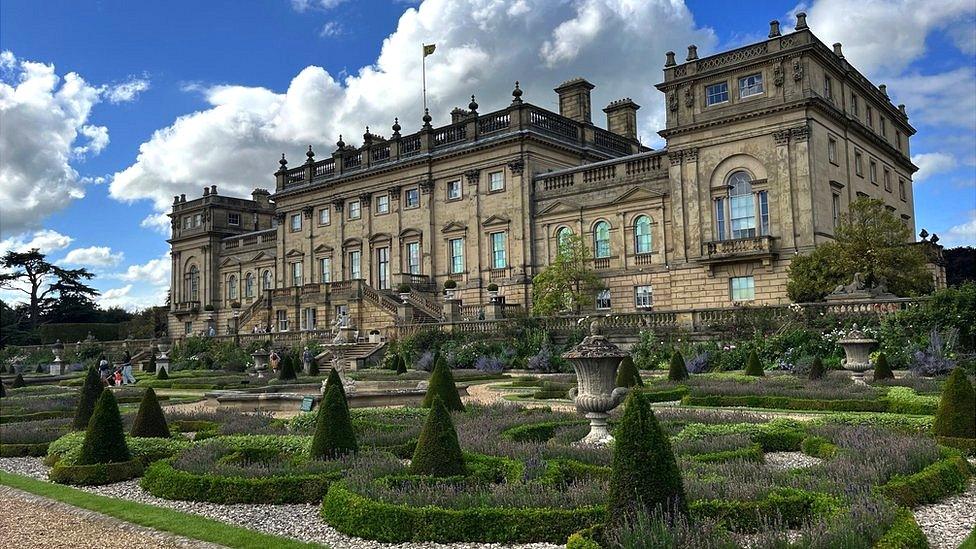
Harewood House was built in the 18th Century with money that the current earl's ancestor made from the slave trade
When the actor visited Harewood House while in his thirties and working at the West Yorkshire Playhouse, he thought the shared name was a coincidence.
"It's only later in life that I've realised that significance and that connection."
Harewood and David Lascelles, the current Earl of Harewood, are now acknowledging their shared history by placing a portrait of the actor on display among the family portraits in Harewood House's grand Cinnamon Drawing Room.
The Earl of Harewood said: "Being honest about the past is the only way to start to address the prejudices of the present."
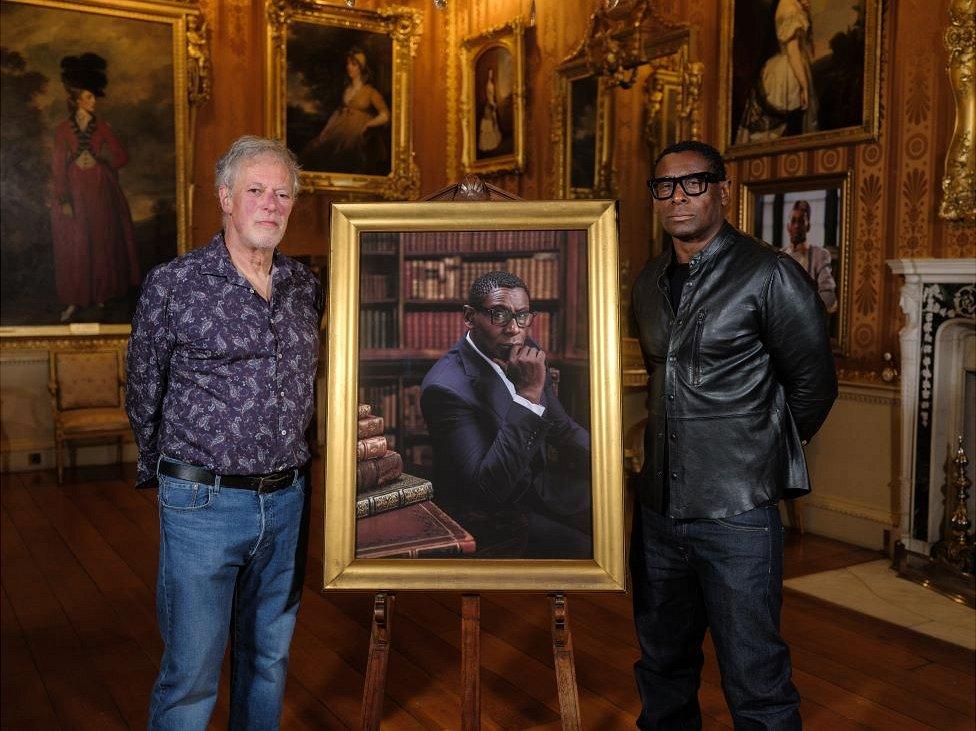
The current Earl of Harewood commissioned the portrait of David Harewood by Ashley Karrell as part of Harewood House's Missing Portraits series
The portrait by Ashley Karrell is part of a series called Missing Portraits, which addresses the lack of diverse representation in the Harewood collection.
The earl said their families "interlock in a weird and dark way", adding: "We can't change what's happened, but we can change what happens now.
"I'd like people to think we'd tried our best to make a difference here."
'Brutality built this house'
David Harewood hopes that when visitors "see a picture of a black person that they may recognise from the television, they will enquire as to why his picture is there, and then they'll understand… all of the unpaid work that my ancestors did, and the brutality of what they suffered… helped build this house".
The issue of how to address the sins of slavery is very current. Barbados is leading calls for reparations, which Harewood supports. The descendants of 19th Century Prime Minister William Gladstone recently travelled to Guyana, the latest family to apologise for their ancestors' links to the slave trade.
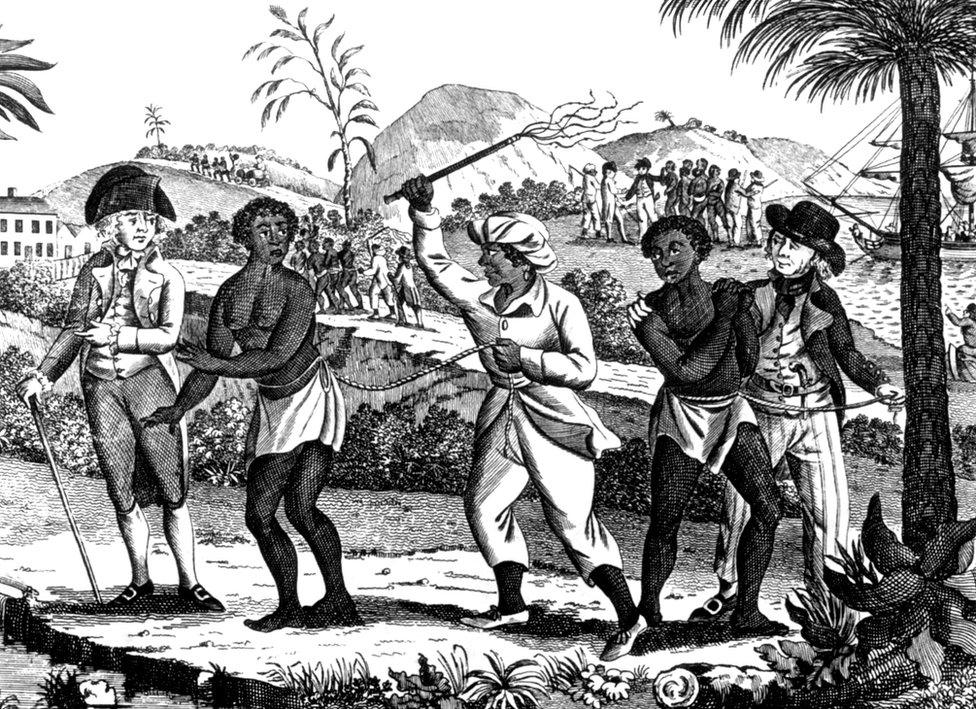
About five million enslaved Africans were taken to the Caribbean, nearly half of whom were brought to the British Caribbean
Like the actor, the earl believes the British government should make a formal apology.
"I think that needs to be something that happens at a national level… At the moment, with our feeble prime minister, there's absolutely no sign of that happening, sadly."
Earlier this year, Mr Sunak said the focus should be on "understanding our history and all its parts, not running away from it, but right now making sure we have a society that's inclusive and tolerant of people from all backgrounds...
"But trying to unpick our history is not the right way forward and is not something we'll focus our energies on."
The current earl has not said sorry for his own family's involvement.
"I've always felt rather ambiguous about apologising for something I haven't done personally," he said, adding the family had spent about £1m on community projects and opened up its archives.
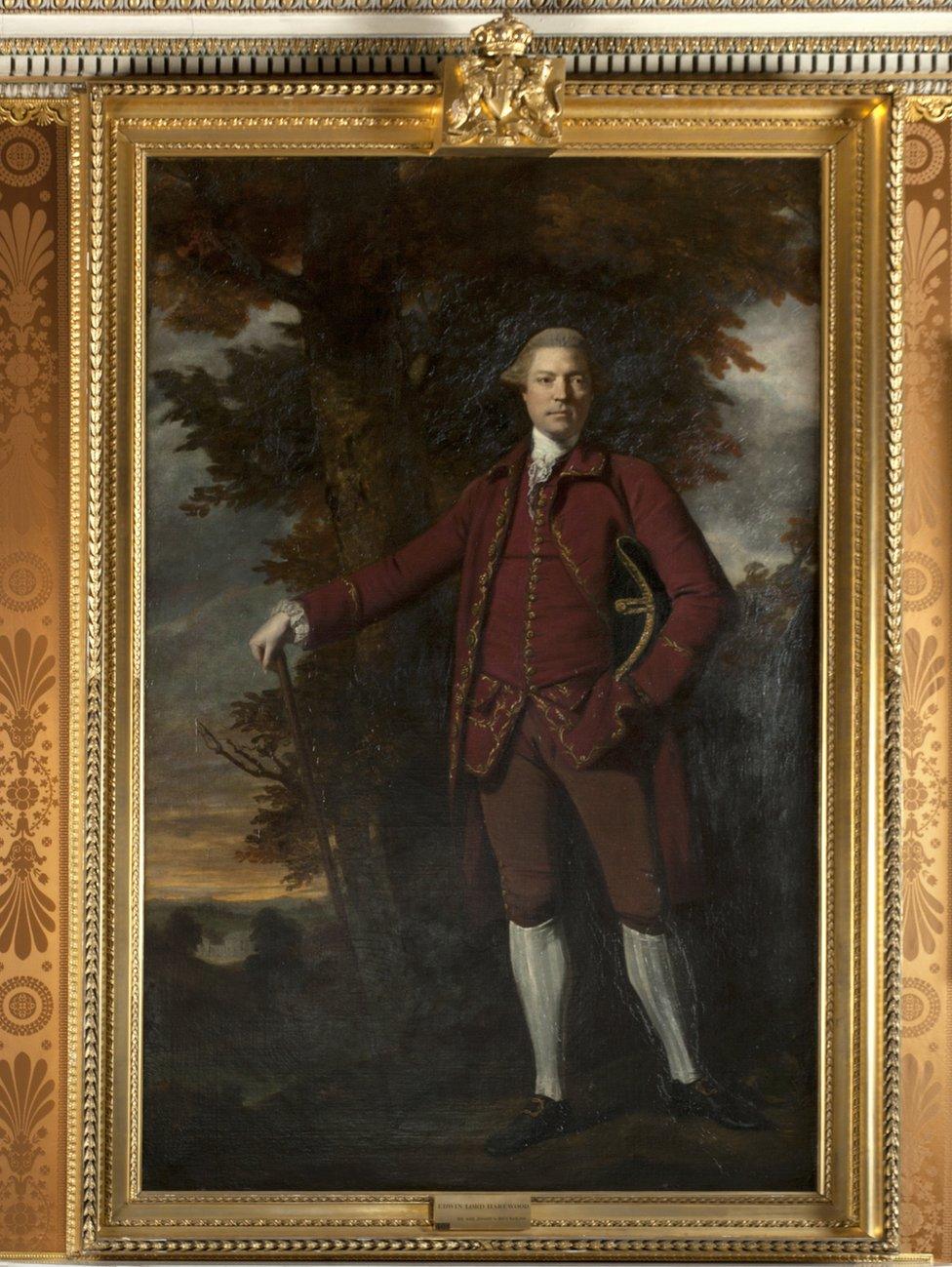
Joshua Reynolds painted this portrait of Edwin Lascelles, Baron Harewood, who built Harewood House from the proceeds of slavery
If Harewood requested a personal apology, he "probably would [give one] if he asked me directly", he said.
We looked through handwritten family papers dating back to when the Lascelles acquired the Thicket and Fortescue plantations in Barbados in 1787. They list "Slaves Stock and Utensils" - itemising Thicket's 238 slaves as worth £45 each.
Goats, hogs, sheep and cattle are listed above slaves.
Particularly poignant and shocking is the reference to six "negroes of no value".

This document relating to the acquisition of the Thicket and Fortescue plantations by Edwin Lascelles in 1787 lists the purchase of "230 negroes", of whom six are dismissed as "of no value"
When slavery was abolished, slave owners were compensated. Between 1835 and 1836, Henry Lascelles, 2nd Earl of Harewood, received £26,307 for 1,277 slaves - worth an estimated £2.6m in today's money.
Slaves received nothing as part of the deal.
The injustice of slavery means none of this is straightforward for David Harewood. He has wrestled with getting involved with a family that benefitted from his ancestors' pain.
He told me of feeling at times "deeply uncomfortable" when sitting in the house.
"There's a part of me that just wants to scream and burn the place down... But I'm not sure what that would achieve."
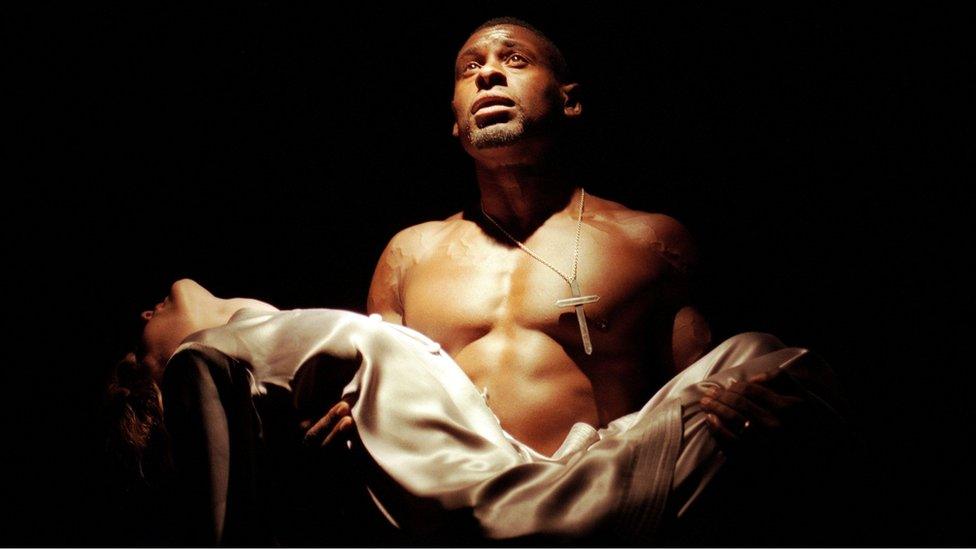
David Harewood was the first black actor to play Othello at the National Theatre in 1997
He also believes Harewood House is a "testament to the resilience of my ancestors", and is impressed by the earl's desire to be accountable for the past.
"Whenever black people attempt to talk about the legacy of slavery, it's somehow seen as doing Britain down," he said.
In fact, he said, both men are trying "to acknowledge that very uncomfortable past and to try and find a way through to a constructive conversation that sparks debate".
In his memoir, Maybe I Don't Belong Here, Harewood described himself as "a black kid from Small Heath in Birmingham who dared to dream of a life amongst Hollywood stars".
He's been on stage and screen as Martin Luther King and Nelson Mandela and, in 1997, was the first black actor ever to play Othello at London's National Theatre.
Now his portrait also sits in one of the country's grandest aristocratic homes. "The ancestors, I think, would be amazed at this."
The portrait is on view at Harewood House from Friday, 8 September.
- Published6 March 2023
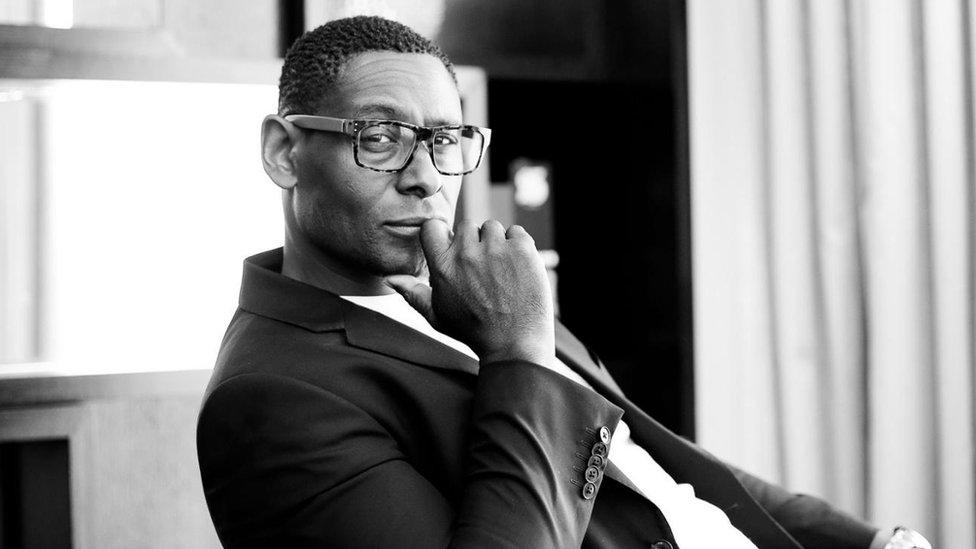
- Published26 April 2023
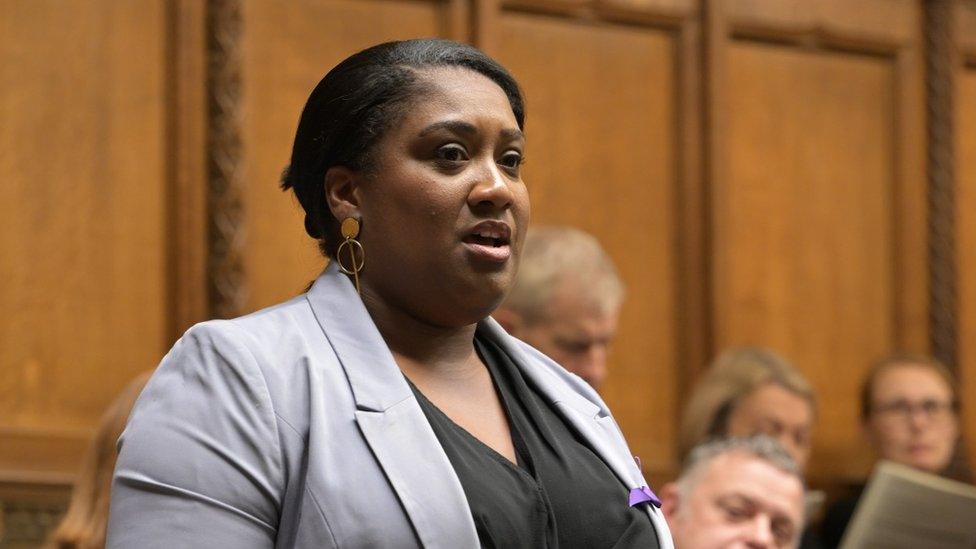
- Published23 August 2023
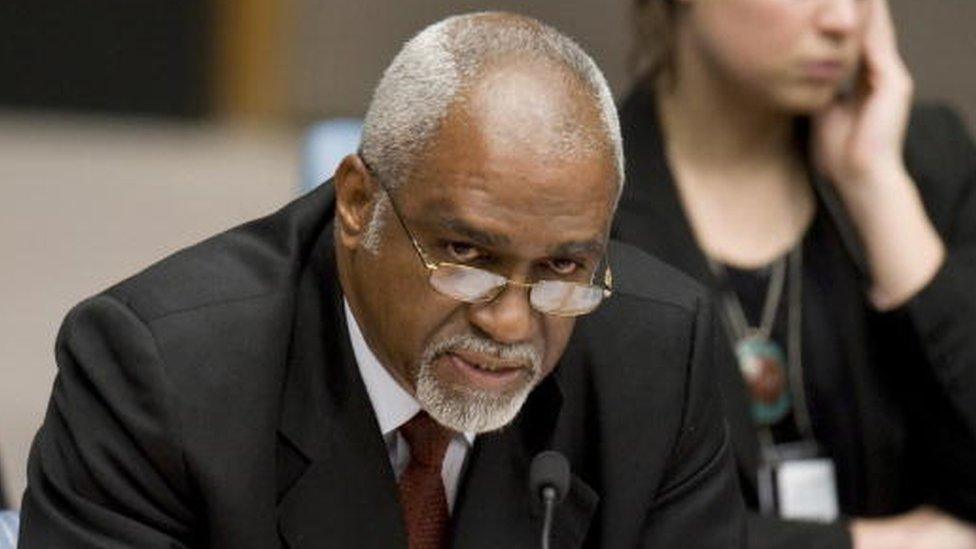
- Published29 March 2023
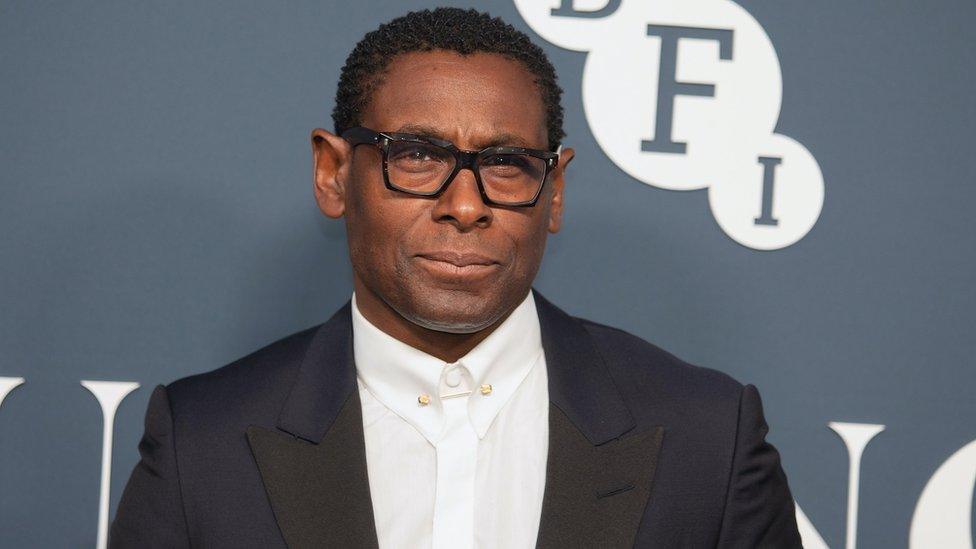
- Published31 December 2022
